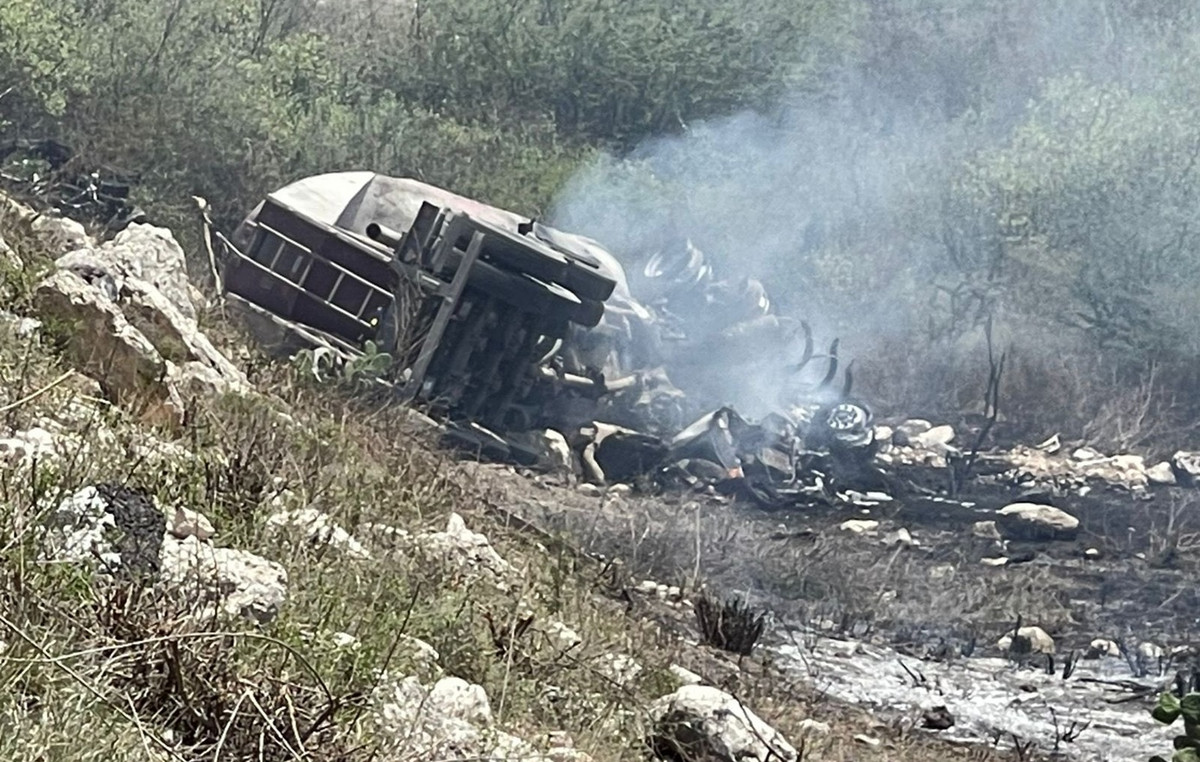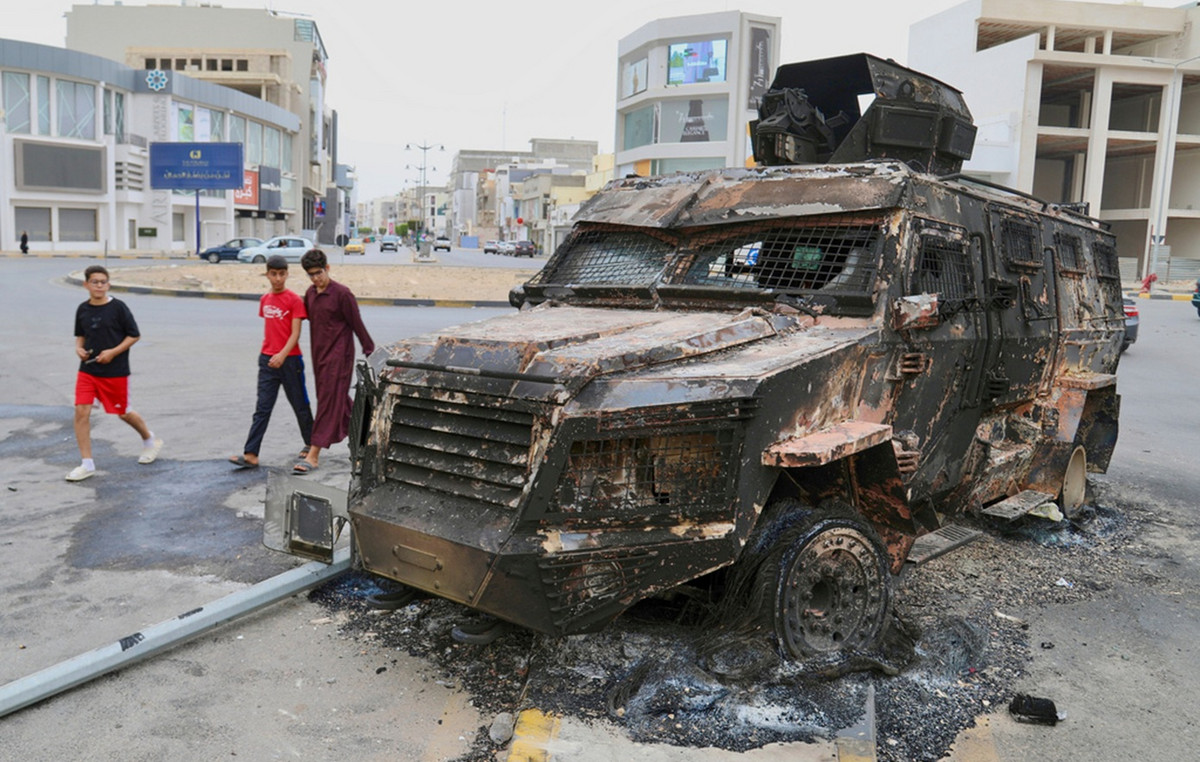Mass protests. Fatal explosions in the middle of a gang war. An overloaded Judiciary and a sterile Legislative Branch, in which a small group of deputies wanders among the empty seats of former colleagues.
For years, this has been life in Haiti. All this time, the light at the end of the tunnel in this bleak picture has been the vote. But the long-awaited election has been promised and delayed again and again by leaders who could rebuild the government – and return the world’s first black republic to a democratic path.
“Before the end of this year, we will put the country into election mode,” said Prime Minister and Acting President Ariel Henry in a speech to the country on Monday (12). He did not mention a date for the election.
Henry, who has already postponed a planned general election amid criticism of the old electoral council, also felt compelled to defend the delay. “To all those who spread rumors that I intend to keep myself in power, I say this is false,” he added.
Elections have been postponed for years. The last time Haitians chose their own political representatives was in 2016. The parliamentary elections scheduled for 2019 did not take place under Jovenel Moise’s presidency, nor the general elections that would follow.
So the Caribbean country has been ruled by decree for three years, first under Moise – until his shocking assassination last year – and now under Henry, sworn in as his successor.
Both governments were supported by the United Nations (UN) Integrated Office in Haiti. Known as BINUH, the political mission will mark its third anniversary of operations in October. However, the challenges only grow with the postponement of the election.

“We will go through the next elections”
Helen Meagher La Lime, Head of BINUH and Special Representative of the United Nations Secretary-General for Haiti, told CNN that its focus is to help the government of interim President Henry reach consensus with opposition and civil society leaders and thus initiate the organization of elections. The process began last year after Moise’s murder and has been painfully slow so far.
“We have a lot of work to do to get to the elections; consensus is needed to establish an electoral council. This council will then work on the constitution, making revisions or rewriting sections. And only then will the elections be organised,” La Lime detailed in his first interview since BINUH’s one-year mandate was renewed by the United Nations Security Council.
Large swaths of Haiti’s opposition say they do not trust Henry to carry out the vote, calling for a transitional government to take control of the country first. Some also view La Lime and other external actors with skepticism, as this is a country where imperialism, occupation and even well-intentioned intervention have a long and brutal history.
“Henry should not be allowed to use the support of the international community to continue to concentrate all powers under his exclusive and failing leadership,” wrote Jacques Ted St Dic, a member of the Montana group, an organization that advocates a transitional government.
“Without legitimacy and without popular trust in the electoral process, any elections will be questioned and the new leaders will not have the popular support to institute desperately needed reforms. This is the cycle that has paralyzed Haiti for more than a decade,” he continued.
La Lime declined to discuss the possibility of a transitional government, telling CNN : “these are ideas that have to be discussed by the Haitians and a consensus to be reached by them”.
Instead of addressing the issue, she praised the simple power of collective lunches, provided by BINUH at a local hotel, to rally political voices in Haiti. Based on that dialogue, she predicted that the country would hold elections in 2023 – and even suggested that BINUH itself might no longer be needed after that.
“We will go through the next elections to see what levels of stability we will have at that time. And then BINUH will consider leaving the country,” revealed La Lime. “We’re not going to stay here forever.”
Safe country for elections
The current scenario of violent unrest in the capital Port-au-Prince makes it difficult to imagine the organization of elections. Even those who most want change doubt the process.
In recent weeks, brutal gang battles in parts of Port-au-Prince have unleashed entire neighborhoods, forcing families from their homes and imprisoning others, afraid to go out even in search of food and water. Hundreds died, were injured or disappeared. Criminals still control or influence parts of the country’s most populous city; kidnappings threaten the daily movements of residents.
Part of a larger ecosystem of UN entities and NGOs operating in Haiti, BINUH is largely limited to advising and supporting the government and national police of Haiti. Their regular reports are robust and detailed, documenting in strong language the state of civil society, politics and human rights in the country.
After recognizing the security crisis, BINUH assigned dozens of officials as advisers to the police. The UN also announced a new “common fund” to support the police, which aims to raise $28 million over the next two years. But that money is for long-term goals, such as funding recruitment and training, increasing women’s representation in security forces, and improving infrastructure and police stations.
“The UN cannot fix anything,” La Lime told CNN . “The UN can work with the government of Haiti and the country’s institutions to produce an improved outcome.”
Impatience is growing. In recent weeks, protesters in several cities have called for interim President Henry to step down in the face of high fuel prices, rising inflation and rampant crime. On Monday (12), the president acknowledged the popular anger, urging calm – but also announced that he would raise the price of fuel, provoking more protests.
In August, Luis Almagro, Secretary General of the OAS (Organization of American States), attacked the global “benefactors”, labeling the efforts of the international community in Haiti as “one of the worst and clearest failures implemented and executed in the framework of any cooperation”. International”.
La Lime acknowledges the criticism. “Yes, the results are not what they should be”, he lamented.
Yet her job is not to take responsibility for the past, or even for the present.
“I think what we need to do is look at the lessons and see what we should work on differently. I don’t think we emphasize this partnership enough. In other words, what does the Haitian side need to do to make the effort more sustainable?”
Source: CNN Brasil
I’m James Harper, a highly experienced and accomplished news writer for World Stock Market. I have been writing in the Politics section of the website for over five years, providing readers with up-to-date and insightful information about current events in politics. My work is widely read and respected by many industry professionals as well as laymen.







